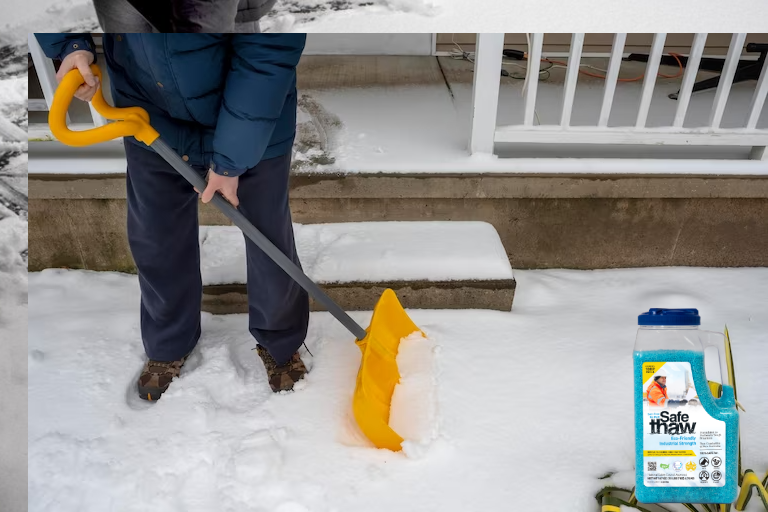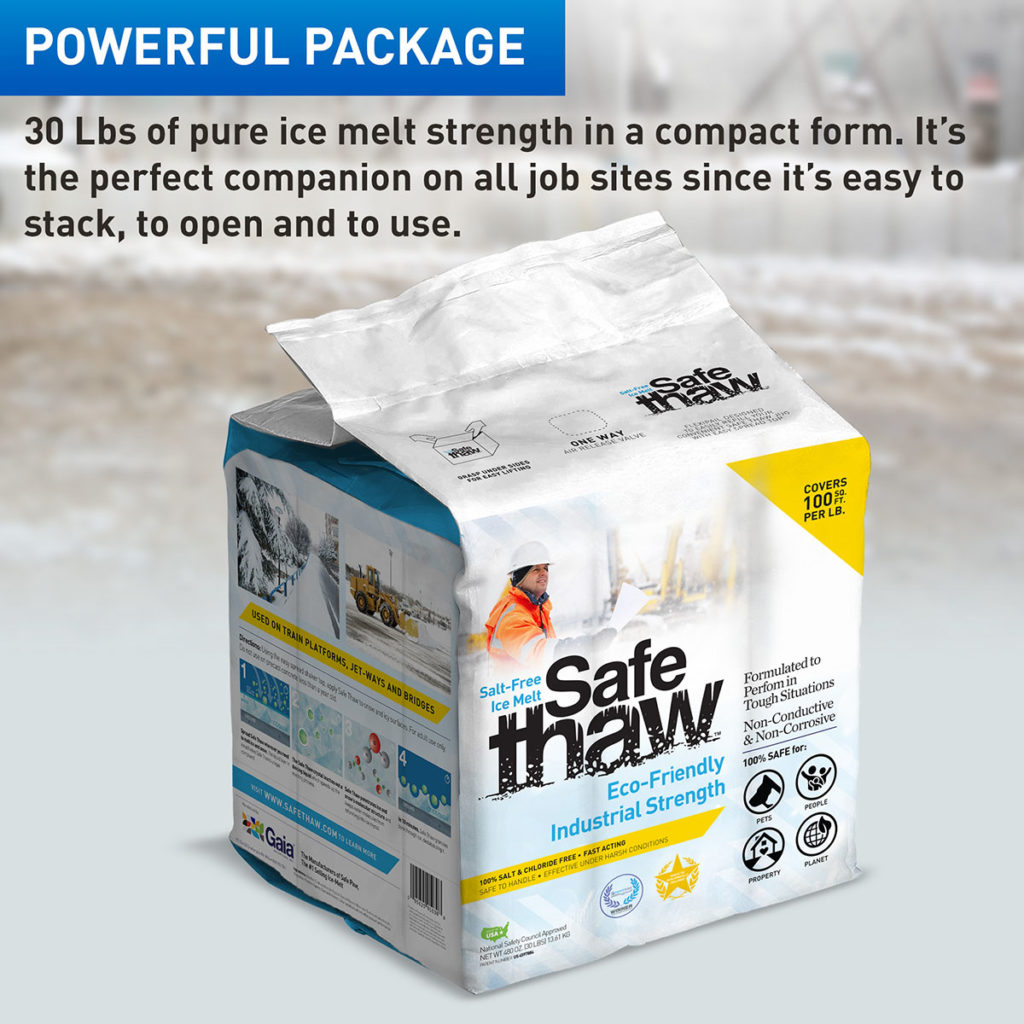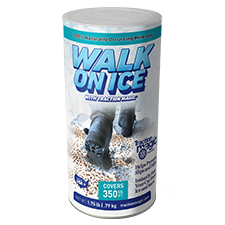The Ultimate Guide To Choosing The Right Ice Melter

It’s winter. And, like most people, you’re probably wondering what’s the best way to melt your sidewalk and driveway snow and ice. There are a lot of options out there: salt, calcium chloride pellets (or “rock”), magnesium chloride granules, urea-based products…the list goes on. So how do you choose the best ice melt for driveway? Well, here are some things to keep in mind when making your decision:

Blizzard Conditions? Stay Safe with Safe Thaw
Safe Thaw was created as the ice management solution for tough winter environments. Ideal in commercial and industrial properties, shops, government agencies, bridges, and construction.
How To Choose The Best Ice Melt For Driveway
Salt is an inexpensive option that can be used on sidewalks and driveways but can stain concrete if not rinsed off regularly (especially if you have pets).
It also leaves a residue that can damage cars’ undercarriages over time if it gets tracked inside from footwear or wheels rolling over it in wet weather conditions when roads are slick.. It will also rust out some metals such as aluminum window frames around doors if left exposed too long without washing off after use outdoors around doors before entering the house because these types tend not to wash away easily.
Keeping all the observations in mind, Gaia launched a product to meet homeowners needs, Safe Thaw. A urea-modified product, it contains ice-melting boosters with special surfactants and unique glycols admixture that instantly helps you melt ice from the driveway and the roof. It works well on any surface and does not cause any damage to the environment. It is the best ice melt driveway.
Winter Storms Are Here!
Stay Safe with Our 100% Salt And Chloride-Free, Pet Safe Ice Melt.
How Cold Is It Outside?
The temperature is important because it affects how quickly the ice melts. The colder it is, the faster the ice melts. And vice versa: The warmer it is, the slower your ice melter will work. So if you live somewhere where winter temperatures are consistently below freezing (32 degrees Fahrenheit), then a fast-acting product like Safe Thaw will probably be best for you–it’ll help keep those walkways clear even when things get really cold outside!
What Kind Of Surfaces Do You Need To Treat?
The perfect ice melter depends on the type of surface you’re treating. If you have concrete, asphalt, gravel or stone as part of your driveway or walkway, then stay away from salt. In such cases, a non-toxic ice melt is probably your best bet. For brick and wood surfaces that can be damaged by water-based chemicals (and even some sand), again choose a non-chloride option instead.
100% Salt & Chloride-Free Ice Melt for Winter Storm Protection.
Do You Have Pets Or Kids Who Will Be Getting Into The Ice Melt?
If you have pets or kids who will be getting into the ice melt, it’s important to make sure that your chosen product is safe for them. Many ice melters are toxic to pets and children – others are not. If you’re not sure how toxic a particular brand of chemical de-icer is, look at its warning label carefully before buying.
We hope now you have an idea which is the best ice melt for concrete surfaces. Hopefully, this article has helped you to decide on the best ice melter for your home. There are many different types of ice melters on the market, and each one has its own unique benefits and drawbacks. It’s important to understand what kind of surface you need treated before choosing an ice melt that will work best for that particular situation.
Try Also Our Other Winter Safety Products:
Safe Paw
The Original and #1 Selling Pet and Child Safe Ice Melt for over 20 years. Guaranteed environmentally safe –It won’t harm animals or children, and it won’t damage your property. That’s Safe Paw. Safe Paw can change how winter affects our planet.

Walk On Ice
The handy disposable canister can be taken everywhere, with the same 100% naturally occurring minerals that provide instant traction on ice or snow. Use it on sidewalks, steps, or as an instant traction agent for your car.



